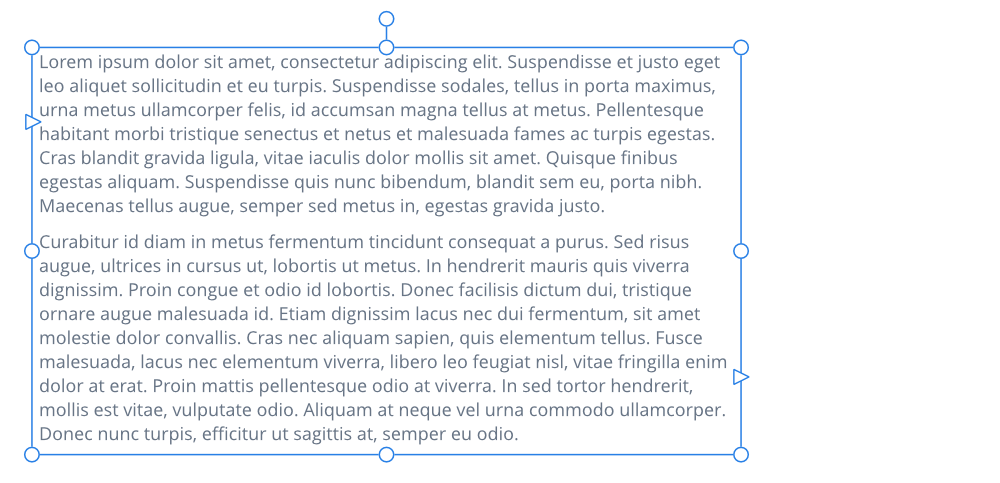Frame text
Frame text is perfect for presenting paragraphs with a formalised structure and layout. If you want to present text in columns, frame text is the ideal solution.

Frame text is perfect for presenting paragraphs with a formalised structure and layout. If you want to present text in columns, frame text is the ideal solution.

Using the Frame Text Tool, frame text can be created within rectangular (or square) frames or within any curve or closed shape. The text frames you create can be moved or resized using the Frame Text Tool.
By clicking in the drawn frame and then typing, you're able to fill the frame with frame text. If excess text overflows the bottom of the frame, you can resolve this by:
The tool's context toolbar lets you choose frame text properties and some basic frame setup details (e.g., number of columns). For more advanced frame setup, you can use the Text Frame panel.
Icons around the text frame indicate whether the frame is filled, linked, and whether text within the frame is overflowing or hidden.
| Icon | Description |
|---|---|
| The frame is unlinked. | |
| The frame is linked. | |
| The frame is linked to a frame that has overflowing text. | |
| There is hidden overflowing text in the frame. | |
| The overflowing text in the frame is visible. | |
| The text in the deselected text frame is overflowing. |
From the Tools panel, select the Frame Text Tool:
Position the cursor close to the curve or within the shape.
The cursor will change to indicate that shaped frame text will be created.
With the frame text selected:
The artistic text may flow differently than the original frame text due to inherent differences between the two object types. Formatting applied to text ranges, such as horizontal alignment, is retained after conversion but may not be discernible in your design, e.g. an artistic text object is only as wide as its longest line of text.